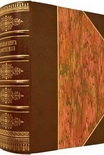Plunder by Menachem Kaiser (english novels for students txt) 📕

Read free book «Plunder by Menachem Kaiser (english novels for students txt) 📕» - read online or download for free at americanlibrarybooks.com
- Author: Menachem Kaiser
Read book online «Plunder by Menachem Kaiser (english novels for students txt) 📕». Author - Menachem Kaiser
Historians and explorers who urged caution, who noted that the discovery was still unconfirmed, were largely ignored; Golden Train fever had set in.
The precise location of the train remained a secret; most reports placed it somewhere along a four-kilometer stretch, between the sixty-first and sixty-fifth kilometers of the Wrocław–Wałbrzych rail line. Explorers from Poland and beyond flooded into Wałbrzych in order to search for the train; local and international media quickly followed. The attention and activity were unprecedented for Wałbrzych, a small, economically depressed town.
The general conservator soon issued an appeal to explorers to cease their searching, warning that the train might be booby-trapped, protected by mines, or full of dangerous gases. His appeal had little effect. The governor ordered police to block entry points along the four-kilometer stretch; some of the rail lines were still active, he said, and explorers could get hurt. A few days later, an explorer died after falling several meters into a mausoleum.
Golden Train fever continued apace. The train seemingly became less abstract by the day, and the legal and logistical implications of a Nazi train full of Jewish gold buried in the Polish countryside were setting in. Most pressingly: Who would get the gold? The CEO of the World Jewish Congress, Robert Singer, said in a statement that any valuables taken from Jews must be returned to their rightful owners or their heirs. A lawyer named Mikhail Joffe said in an interview that the train’s contents belonged to Russia. “If the property was taken from territory of the USSR,” he said, “then the cargo, in accordance with international law, must be passed to the Russian side.” This claim was promptly rejected by Polish authorities, who said that all efforts would be made to return the property to its original owners; however, as numerous organizations pointed out, such a restitution would be tremendously complicated and contentious, and Poland has shown itself somewhat less than capable in this department. The Americans and Israelis took a quiet but active interest as well.
A few weeks later, the minister of defense ordered Polish military forces to clear and secure the site, check for unexploded mines and buried chemical weapons, and remove trees and shrubs to prepare for an underground survey.
In the meantime, the explorers—since identified by the media as Piotr Koper and Andreas Richter—had at last released their evidence. There were two key documents. The first was a readout, supposedly from a KS-Analysis GPR KS700, a high-end ground-penetrating radar device. The second was an image of a shaft. The train, Koper and Richter said, was at the end of this shaft. Whether or not these documents constituted proof of the Golden Train was ferociously debated.
On September 4, Koper and Richter—who had thus far kept a relatively low profile—went on television and, reading from a prepared statement, claimed to have conclusive evidence of the train’s existence. They also claimed to have secured the funds for an excavation, and divulged—possibly unintentionally—that the train was located at the sixty-fifth kilometer. The explorers—and, in turn, the journalists and spectators—promptly moved their operations, concentrating and exacerbating the chaos.
The next day, Koper and Richter were expelled from the Lower Silesian Research Association, the exploration group of which they had been long-standing members. Koper and Richter had betrayed the association, the head of the group said, and, further, had not given due credit to Tadeusz Slowikowski, a retired miner who had been researching and tracking the Golden Train for decades. Slowikowski’s family then accused Koper and Richter of stealing documents from Slowikowski.
Soon thereafter, a regional official pointed out that Koper and Richter had not secured a permit for their initial exploration, when they had first discovered the Golden Train; not only did they do not deserve any reward, the official said, but also they could face fines and/or prison.
More and more people flooded into Wałbrzych—more explorers, more journalists, more tourists, more government officials. A mishmash of agencies, including city police, state police, forest guard, military, and railway security, patrolled the area. The city was reaching a breaking point. But this was also an unprecedented economic windfall. Hotels and restaurants were booked solid. There was Golden Train beer, “gold” bars of chocolate, all varieties of Golden Train tchotchkes. A Golden Train tourist package was slapped together to promote local sites of mystery. One official estimated that Golden Train fever had brought $200 million worth of free publicity to Wałbrzych.
There were attempts to dial it back. A few officials pointed out that Koper and Richter’s evidence was far from conclusive. The minister of culture and national heritage said that the train was still nothing more than a legend. Complaints were filed against the general conservator: his premature confirmation of the train’s existence, the complaints said, constituted a major breach of his official responsibilities.
But for the most part these words of caution fell on deaf ears. If anything they made it worse, served only to heighten the pitch, fuel the speculation. Someone must play the role of the skeptic—otherwise it isn’t a real mystery, and the conviction of the believer is only hardened.
One of the few voices of reason, of moral clarity, was Deputy Prime Minister of Poland and Minister of National Defense Tomasz Siemoniak. Siemoniak did not opine as to whether the Golden Train was real or not. Instead he sought to remind everyone what this site actually was: the train, the gold, whether or not it existed, was incidental; much more important was the fact that thousands of slave laborers had died here. This was a site of death, not





Comments (0)